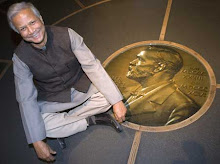My definition of social entrepreneurship clearly allows more individuals, ideas, opportunities, and organizations into the tent. As I wrote in the Fall 2006 Stanford Social Innovation Review, the question is not whether social entrepreneurs exist—that much is certain in the most cursory sampling of the Ashoka and Echoing Green fellowship winners from recent years, most notably Muhammad Yunus. Rather, the question is whether the field is too exclusive for its own good. By defining social entrepreneurship more by the characteristics of the individual entrepreneurs who forge social value through their work, I wrote that “the field may have excluded large numbers of individuals and entities that are equally deserving of the support, networking, and training now reserved for individuals who meet both the current definitional tests of a social entrepreneur and the ever-growing list of exemplars.” Hence, my 2006 definition of social entrepreneurship was more inclusive. As I wrote, social entrepreneurship is an effort by an individual, group, network, organization, or alliance of organizations that seeks sustainable, large-scale change through pattern-breaking ideas in what governments, nonprofits, and businesses do to address significant social problems. Between 2006 and 2008, I shortened the definition to focus more precisely on efforts to solve intractable social problems through pattern-breaking change, thereby reserving the question about who acts as an entrepreneur and where entrepreneurial activity occurs for further research. My old definition focused on the kind of systemic change that Martin and Osberg highlighted as essential for creating a new social equilibrium. But I also embraced a set of underlying assumptions that increased my definition’s inclusiveness, most notably the notion that entrepreneurs do not always invent alone. Instead, social entrepreneurship can come from small groups or teams of individuals, from organizations, networks, or even communities that band together to create pattern-breaking change. By challenging the notion that socially entrepreneurial activity is the product of a 24/7 entrepreneur who perseveres against the odds, my old definition provided a bigger tent for social entrepreneurship. My 2006 definition also embraced the possibility that the quantity of socially entrepreneurial activities varies across individuals and organizations, meaning that organizations might be somewhat or moderately socially entrepreneurial, while still meeting a more traditional charitable mission. My definition also focused on the notion that some individuals and organizations might even stop their socially entrepreneurial activities to concentrate on strengthening their operations or because of stall points, funding crises, or leadership transitions. Not surprisingly, perhaps, given the field’s focus on a relatively small number of social entrepreneurs, my definition provoked intense reactions within the field, especially given my assumption that social entrepreneurs might not be as rare as imagined. In questioning the “cult of personality” that surrounds charismatic entrepreneurs, I had implied that individuals were somehow unimportant to social entrepreneurship. My more inclusive view of social entrepreneurship almost certainly reflects my bias as an educator. As I have argued before, the amount of social entrepreneurship can be increased by supporting more potential entrepreneurs as they cross over to actual engagement. This is the core belief at New York University’s Robert F. Wagner School of Public Service, which houses the Catherine B. Reynolds graduate and undergraduate fellows program on social entrepreneurship. The effort is based on the belief that social entrepreneurs can be identified early in their careers and given the skills and coaching to engage in socially entrepreneurial activity as soon as possible. Some will start new ventures, others will join entrepreneurial organizations, and still others will engage whole communities in the search for change.
Source: http://www.socialedge.org



No comments:
Post a Comment